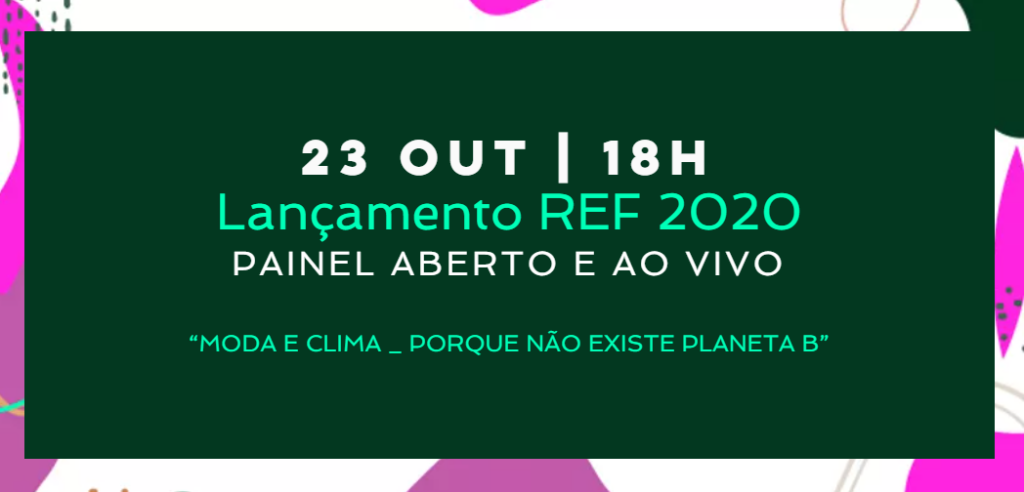
One aspect of marine pollution that is not always so widespread concerns the impacts of fashion on the oceans. Like disposable plastics, synthetic fabrics like polyester and nylon release plastic microparticles with each wash and contribute 35% of the microplastic that arrives at sea. The fashion industry also contributes to climate change, due to its linear production process. The result is a dramatic increase in marine pollution, affecting the lives of thousands of marine animals.
To talk about this topic, the 2020 edition of the international fashion and sustainability forum Rio Ethical Festival (REF) invited Oceana’s marine scientist, Lara Iwanicki. She will participate in the panel “Fashion and Climate – Because there is no planet B”, on October 23, at 6 pm, with free live transmission on YouTube of the festival.
Experts François Ghislain-Morillion (Vert) will also participate in the debate; Oskar Metsavaht (Osklen / Instituto-E); Sérgio Leitão (Instituto Escolhas); Taise Beduschi (Grupo Malwee); and Andréia Coutinho Louback (Instituto Alana). The panel will be held in collaboration with the Sustainable Fashion Laboratory and the Brazilian Conference on Climate Change.
“We need to reduce the impact that the fashion industry has on the oceans, and scientific knowledge combined with innovation allows us to develop strategies that really work,” says Lara Iwanicki. “In this context, the engagement of companies and the government is essential to curb marine pollution, overfishing and global warming.”
Lara Iwanicki explains that the oceans are under pressure from all sides. With global warming, marine waters have become more acidic because they absorb more CO2, which can affect the development of both phytoplankton, responsible for producing half of the oxygen we breathe, and large marine animals, such as whales. “If we add to this the large amount of plastics that reach the oceans annually, we have a very worrying picture”, warns the marine scientist.
The panel “Fashion and Climate – Because there is no planet B” marks the launch of the second edition of the Rio Ethical Festival, which this year will be held in digital format, from October 30 to November 30. The forum platform will have 19 debates, with 31 international and 40 national speakers in unpublished panels, fashion films and thematic webinars. Access to the full program will be restricted to subscribers.
With the mission of promoting reflections on a model of overproduction and exhausted consumption, Rio Ethical Fashion brought together, in 2019, more than 600 specialists from academia, industry, NGOs, brands and producers around the question: How to make fashion more ethical and sustainable? In 2020, the digital version should expand the audience that participates in the activities.
SERVICE
Panel “Fashion and climate – because there is no planet B”
Date: October 23 (Friday)
Time: 6:00 pm
Free and live broadcast on REF‘s YouTube channel